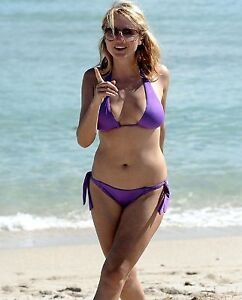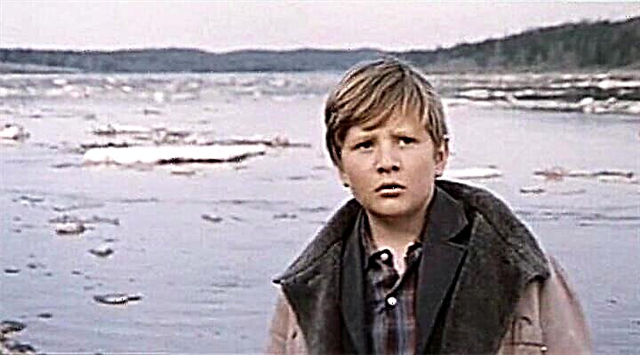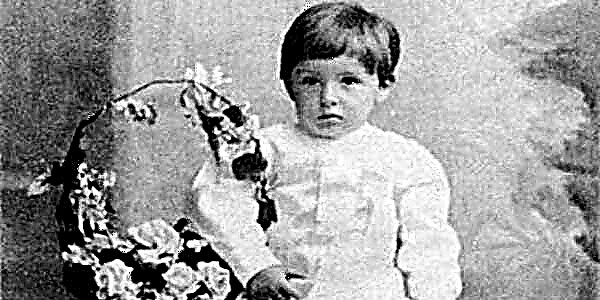Makar Alekseevich Devushkin is a titular adviser of forty-seven years, who is copying paper for a small salary in one of the St. Petersburg departments. He has just moved to a new apartment in a "capital" house near Fontanka. Along a long corridor - the doors of rooms for residents; the hero himself huddles behind a partition in a shared kitchen. His former dwelling was “not an example better”, but now for Devushkin the main thing is cheapness, because in the same courtyard he rents a more convenient and expensive apartment for his distant relative, Varvara Alekseevna Dobroselova.
The poor official takes under his protection a seventeen-year-old orphan, for whom, besides him, there is no one to intercede. Living nearby, they rarely see each other, since Makar Alekseevich is afraid of gossip. However, both need the warmth and compassion that they derive from almost daily correspondence with each other. The history of the relationship between Makar and Varenka is revealed in thirty-one - his and twenty-four - her letters, written from April 8 to September 30, 184 ... Makar's first letter is permeated with the happiness of finding heart affection: “... spring, so thoughts all so pleasant, sharp, intricate, and dreams come tender ... ”Denying his food and dress, he throws out flowers and sweets for his“ angel ”.
Varenka is angry with the patron for unnecessary expenses, cools his ardor with irony: “he lacks some verses”. “The paternal affection animated me, the only pure paternal affection ...” - Makar is embarrassed.
Varya persuades a friend to come to her more often: “What other matters!” She takes home work - sewing.
In subsequent letters, Devushkin describes in detail his home - “Noah's Ark” by the abundance of a motley audience - with a “rotten, acutely-sweetened smell” in which “Chizhiks are dying.” He draws portraits of neighbors: a midshipman’s card player, petty writer Ratazyaev, a poor official without a place Gorshkov and his family. The mistress is a "real witch." It is a shame that it’s bad, stupidly writes - “there is no syllable”: after all, I studied “not even with copper money”.
Varenka shares her anxiety: Anna Fyodorovna, a distant relative, “finds out” about her. Varya used to live with her mother in her house, and then, supposedly to cover the expenses for them, the “benefactor” offered the orphaned girl to the wealthy landowner Bykov, who had dishonored her. Only the help of Makar saves the defenseless from the final "death". If only the consolidation and the Bulls would not know its address! The poor thing gets sick from fear, almost a month lies unconscious. Makar has been around all this time. To put his "clever" on his feet, he sells a new uniform. By June, Varenka is recovering and sends notes to his caring friend with the story of his life.
Her happy childhood was spent in her native family in the bosom of rural nature. When the father lost the manager's place on the estate of Prince P-go, they came to Petersburg - “rotten”, “angry”, “dreary”. Constant failures brought his father to the grave. The house was sold for debts. Fourteen-year-old Varya and her mother were left without shelter and money. It was then that Anna Fedorovna sheltered them, who soon began to reproach the widow. She worked beyond her strength, ruining poor health for a piece of bread. For a whole year, Varya studied with a former student Pyotr Pokrovsky who lived in the same house. She was surprised at the “kindest, most worthy man, the best of all”, a strange disrespect for the old father, who often visited his adored son. He was a bitter drunkard, once a petty official. Peter's mother, a young beauty, was married to him with a rich dowry landowner Bykov. Soon she died. The widower married a second time. Peter, on the other hand, grew up separately, under the auspices of Bykov, who placed the young man who had left the university because of his health “on bread” to his “short acquaintance” Anna Fedorovna.
Joint vigil at the bedside of a sick Varina mother brought the young people together. An educated friend taught the girl to read, developed her taste. However, Pokrovsky soon fell down and died of consumption. The hostess at the expense of the funeral took all the things of the deceased. The old father took her books as much as he could, and stuffed them in his pockets, hat, etc. It began to rain. The old man fled, crying, behind a cart with a coffin, and books fell from his pockets into the dirt. He picked them up and fled after him again ... Varia, in longing, returned home to her mother, who also soon died ...
Devushkin answers with a story about his own life. He has been serving for thirty years. “Smirny”, “quiet” and “kind”, he became the subject of constant ridicule: “Makar Alekseevich was introduced into the proverb in our entire department”, “... they got to my boots, to my uniform, to my hair, to my figure: everyone didn’t according to them, everything needs to be redone! ” The hero is indignant: “Well then, <...> such that I’m rewriting it! Is it a sin to rewrite it? ” The only joy is Varenka: “as if the Lord blessed me with a house and family!”
On June 10, Devushkin takes his ward for a walk to the islands. She is happy. Naive Makar delighted with the works of Ratazyaev. Varenka notes the tastelessness and arrogance of “Italian passions”, “Ermak and Zyuleika”, etc.
Understanding all the overwhelmingness for Devushkin of material cares for himself (he wore himself so much that he causes contempt even for the servants and watchmen), the sick Varenka wants to get a governess. Makar is against: its “usefulness” is in a “beneficial” effect on his life. He stands up for Ratazyaev, but after reading Varya's "Station Caretaker" Pushkin, he is shocked: "I feel the same way, just like in a book." Vyrina tries on fate on herself and asks her "native" not to leave, not to "destroy" him. July 6, Varenka sends Macar the Gogol "Overcoat"; that evening they attend the theater.
If Pushkin’s story elevated Devushkin in his own eyes, then Gogolev’s story offends. Identifying himself with Bashmachkin, he believes that the author spied on all the little things in his life and unceremoniously unveiled. The dignity of the hero is hurt: "after this you have to complain ..."
By early July, Makar had spent everything. The worst moneylessness is only the ridicule of tenants over him and Varenka. But the worst thing is that the "seeker" is the officer, of the former neighbors, with an "unworthy offer." In despair, the poor fellow drank, disappeared for four days, skipping service. I went to shame the offender, but was thrown off the stairs.
Varya consoles her defender, asks, despite gossip, to come to her dinner.
Since the beginning of August, Devushkin has been trying in vain to borrow money for interest, especially necessary due to a new disaster: the other day another “seeker” came to Varenka, directed by Anna Fedorovna, who would soon visit the girl herself. It is urgent to move. Makar is drinking again from impotence. “For my sake, my dear, do not destroy yourself and do not destroy me,” the unfortunate pleads with him, sending the last “thirty kopecks in silver.” An encouraged poor man explains his “fall”: “how you lost respect for yourself, how you indulged in the denial of your good qualities and your dignity, so here everything disappears!” Varia gives self-esteem to Varya: people “abhorred” him, “and I began to abhor myself., And <...> you <...> lit up my whole life dark, <...> and I <...> found out that <...> is no worse than others ; that only <...> I don’t shine with anything, there’s no gloss, I don’t drown, but still I’m a man, that I’m a man with my heart and thoughts. "
Varenka’s health is deteriorating; she is no longer able to sew. In alarm, Makar goes out on a Fontanka embankment on a September evening. Dirt, mess, drunk - “boring”! And on neighboring Gorokhovaya - rich shops, luxury carriages, elegant ladies. A walker falls into "freethinking": if labor is the basis of human dignity, then why are so many loafers full? Happiness is not deserving of merits - therefore the rich should not be deaf to the complaints of the poor. Makar is a little proud of his reasoning and remarks that he "has recently formed a syllable." September 9, Devushkinu smiles at luck: the humble and miserable official, who was called out for a mistake in a paper on the “dissolution” of the general, won the sympathy of “His Excellency” and received a hundred rubles from him personally. This is a real salvation: paid for an apartment, a table, clothes. Devushkin is suppressed by the magnanimity of the boss and reproaches himself for recent “liberal” thoughts. Reads the Northern Bee. Full of hope for the future.
Meanwhile, Bykov will find out about Varenka and on September 20 is going to get married to her. His goal is to have legitimate children in order to deprive the inheritance of the "worthless nephew." If Varya is against, he will marry a Moscow merchant. Despite the unceremoniousness and rudeness of the proposal, the girl agrees: “If anyone can <...> return my honest name, turn poverty away from me <...> so this is the only one." Makar dissuades: “your heart will be cold!” Sick of grief, he still until the last day shared her efforts to gather for the trip.
September 30 - wedding. On the same day, on the eve of departure to Bykov’s estate, Varenka wrote a farewell letter to an old friend: “Who will you stay here for, kind, priceless, unique!”
The answer is full of despair: "I both worked, and wrote papers, and walked, and walked, <...> all because you <...> lived here, on the contrary." Who now needs his formed “syllable”, his letters, himself? “By what right” destroy the “human life”?

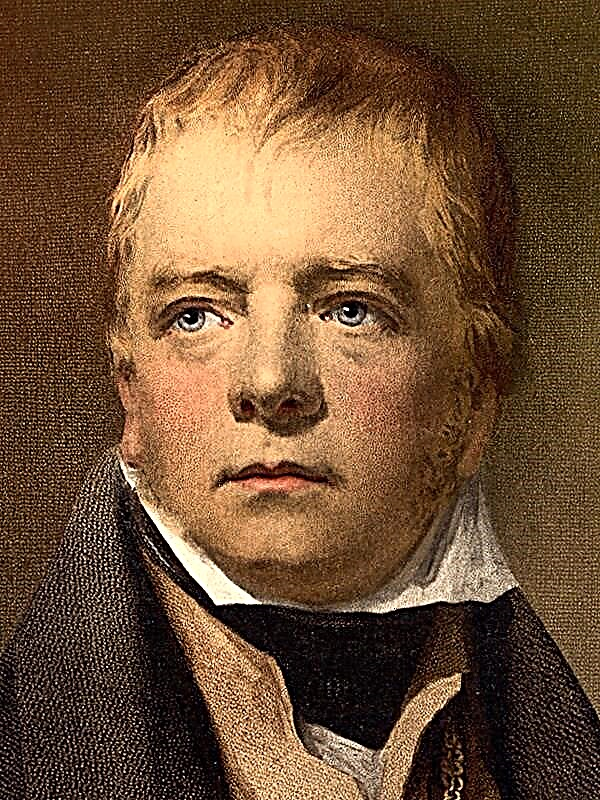

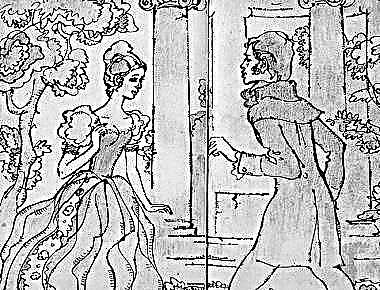

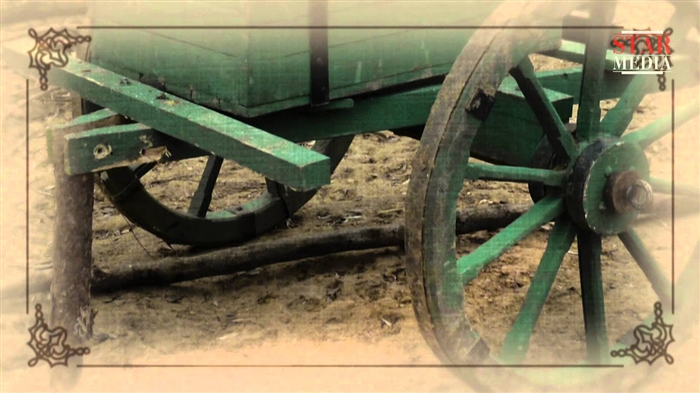 Roslavlev
Roslavlev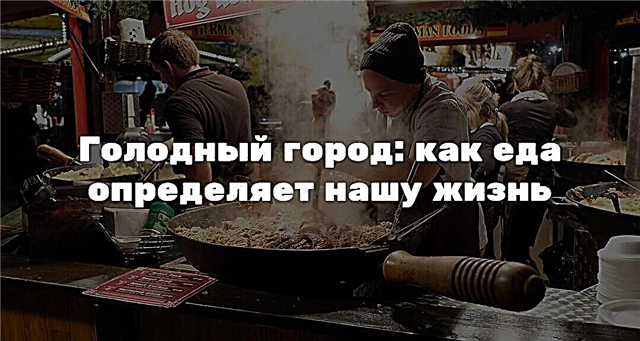 Hungry city
Hungry city